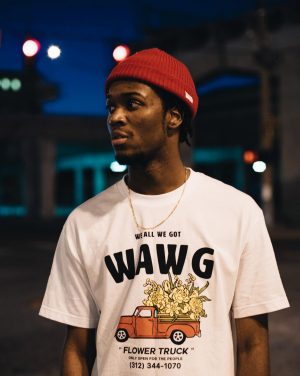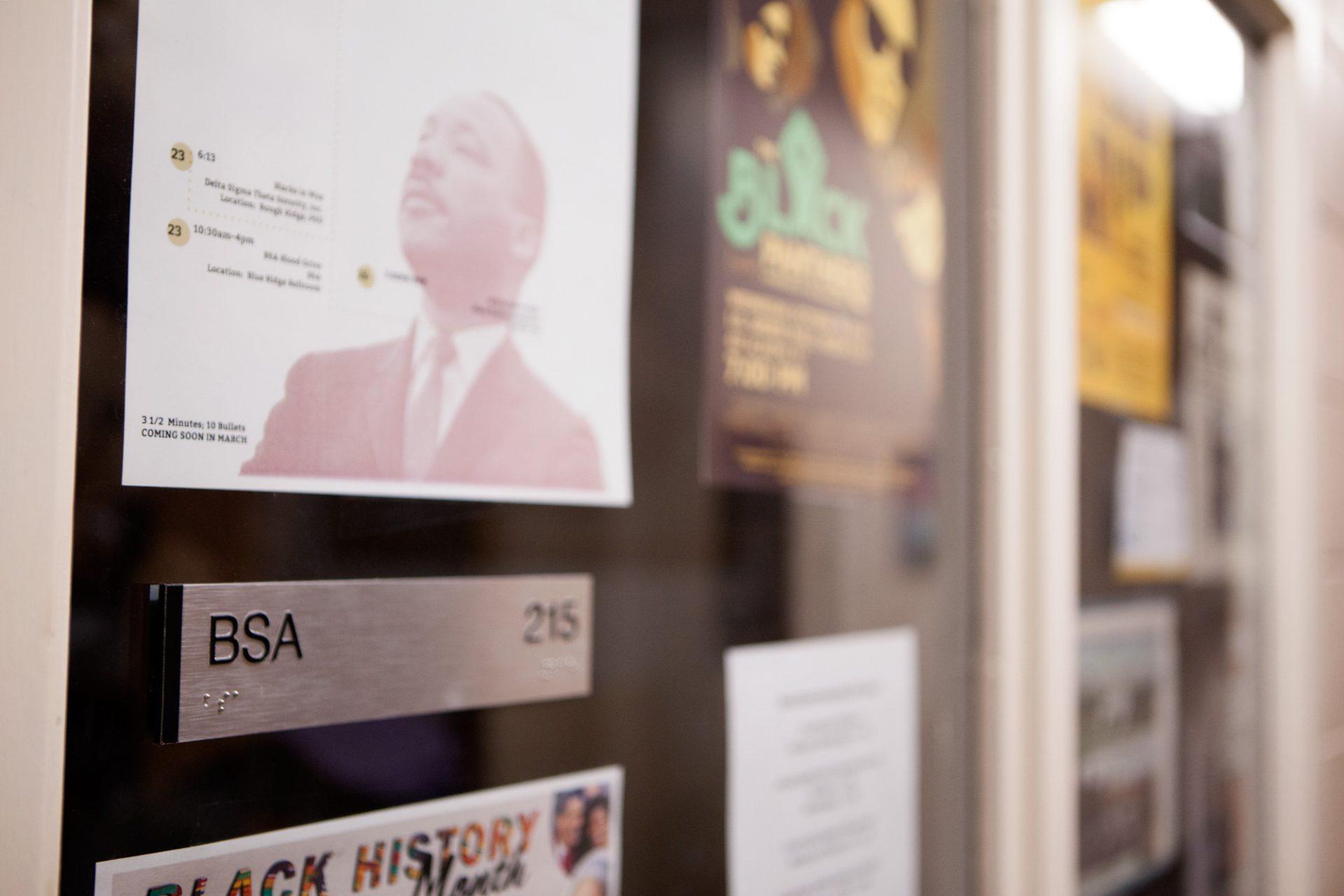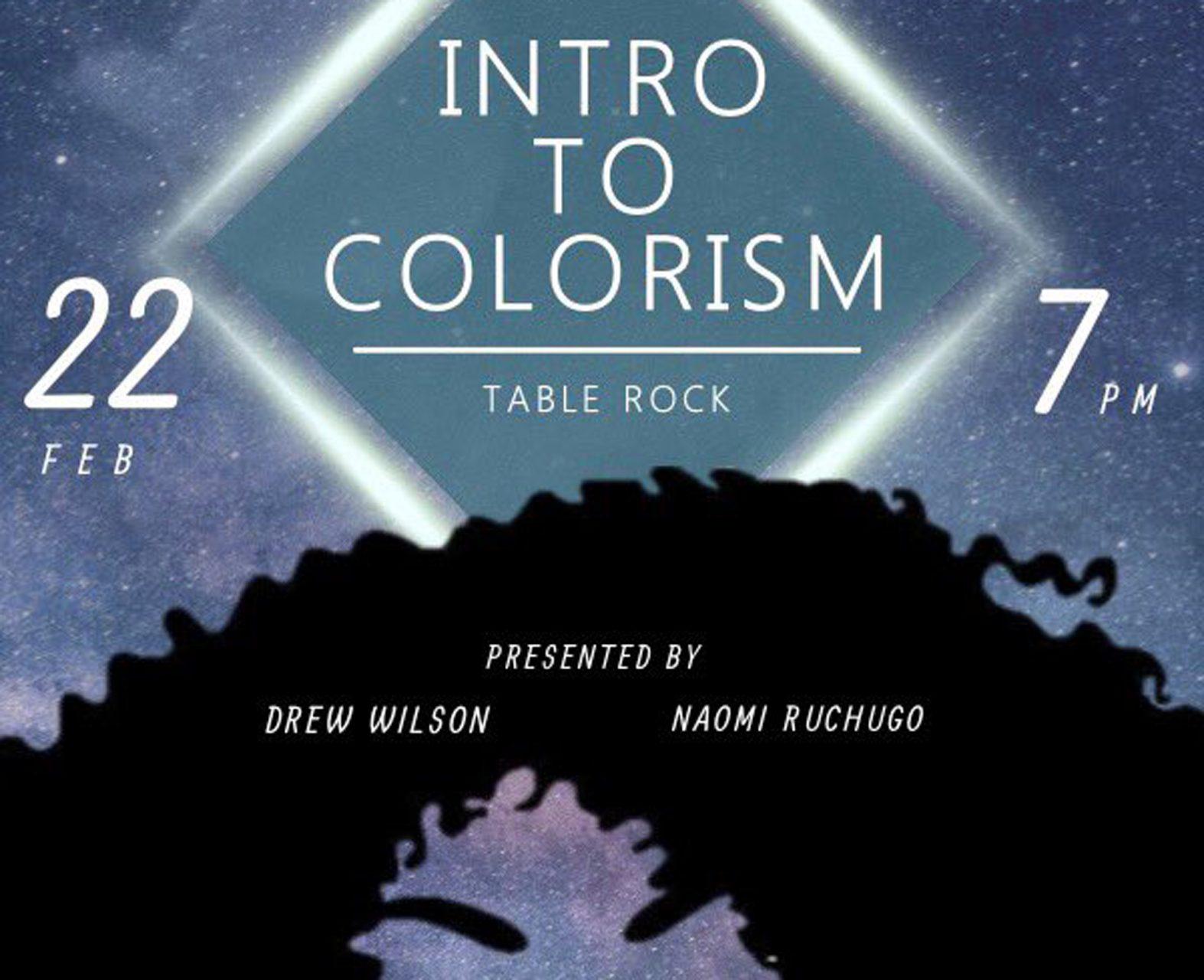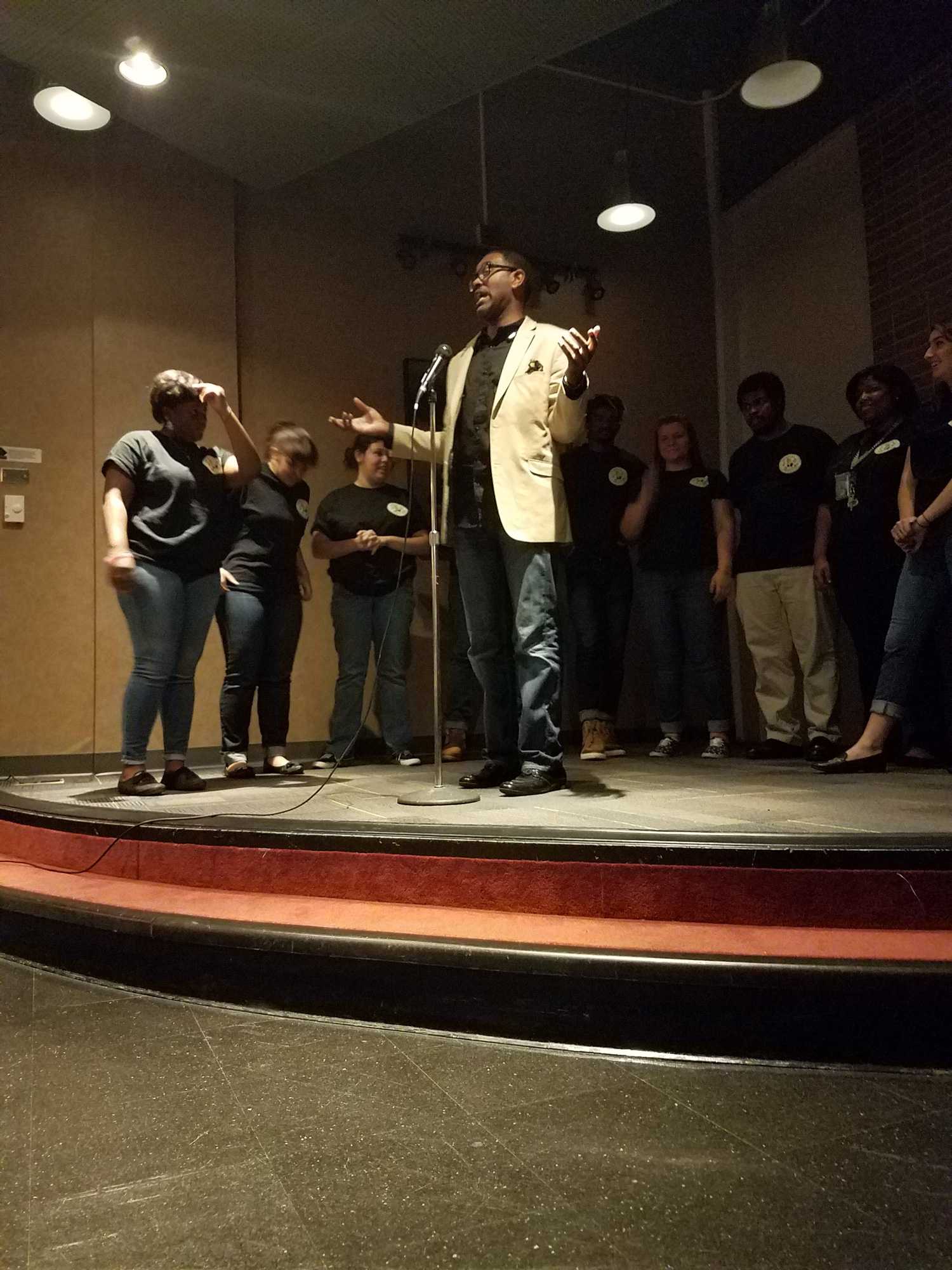Honoring History Through Talent
Black Arts Showcase provides creative outlet for students of color
October 10, 2019
In middle school, Kyndavee Bichara asked her friend why she wasn’t getting as much attention as the others.
He replied, “Maybe if you went to a school with more people of your skin color, then maybe you would get more attention and be more beautiful.”
The sophomore international business major said, “Come around to college time, people still have this tendency to expect things of you, and for you to look a certain way. You know, bigger butt, bigger boobs.”
These experiences inspired Bichara to write her poem, “Why do I have to look a certain way?”
Bichara reads, “My hair isn’t straight enough. My skin isn’t light enough. My ass isn’t fat enough. Why am I not enough?”
Bichara and seven other acts expressed African American arts and culture in various ways at the Black Arts talent showcase on Oct. 4 in Plemmons Student Union. The showcase featured an Appalachian Gospel Choir performance, spoken word by freshman graphic design major Ken Cason, canvas art by sophomore studio art major Jelonnie Smith and songs by freshmen undecided major Laoura Boiro and journalism major Charlee Douglas.
The Black Student Association hosted the event and chose the Harlem Renaissance as this year’s theme.
The Harlem Renaissance was the blossoming of African American culture — especially in literature, music and stage performance — from 1918 to 1937. Notable artists from this period include poet Langston Hughes, author Zora Neale Hurston, sociologist W.E.B. Du Bois and dancer Josephine Baker.
Assistant Director of Multicultural Student Development Jerisha Farrer said more African Americans pursued higher education and redefined black culture during the era.
Farrer helped plan the showcase, and said in the future, she hopes to promote the event more and bring in more resources and artists.
“(We want to) amplify what the black and brown voice would look like here on campus,” Farrer said.
BSA marketing chair Colbie Lofton said most of the artists tried to base their work and performance around the Harlem Renaissance.
“They wanted to uplift artists within that era and give them credit, but also bring their own style and their own twist,” Lofton said.
In the spirit of Baker, the rebellious entertainer and activist, hip-hop group Royal Dynasty danced to Beyonce’s “Countdown” and Trap Beckham’s “Little Booties Matter.” Audience members cheered as Royal Dynasty dominated the stage.
“(Black Arts) gives students a way to express themselves in front of a community that supports them, a community that they’re comfortable presenting around,” Lofton said. “This event is important because I really support and advocate for black excellence, so I just want to see other people that look like me do well in achieving their goals.”
Senior creative writing major Alexis Lawson recently published her first book and read a couple of poems from it.
“And she is the kind of girl who deserves all the good things that this world has to offer. The kind of girl you’d break your neck for, repent your sins at the altar,” Lawson read from “She Is.”
Another performer achieving his creative goals while studying forensics at App State is senior Philip Martin, a Christian rapper. Martin released his album “Lord Open My Eyes” in August and plans to release another in December.
“I used to have a bad stuttering problem, and it would make me depressed, so I wrote poetry to cope,” Martin said. “One day, God was like, ‘It’s time for you to use that gift of poetry and turn it into rap, and be able to minister to people that are lost and broken.’”
Martin said he is grateful for events like the Black Arts Showcase because it helps him promote and elevate his craft.
“Artists like me, you know, we’re trying to get heard, and (it’s) more about giving a message, and more about being in the community, making an impact, and not worrying about numbers or worrying about who’s going to come out or come in,” Martin said.













